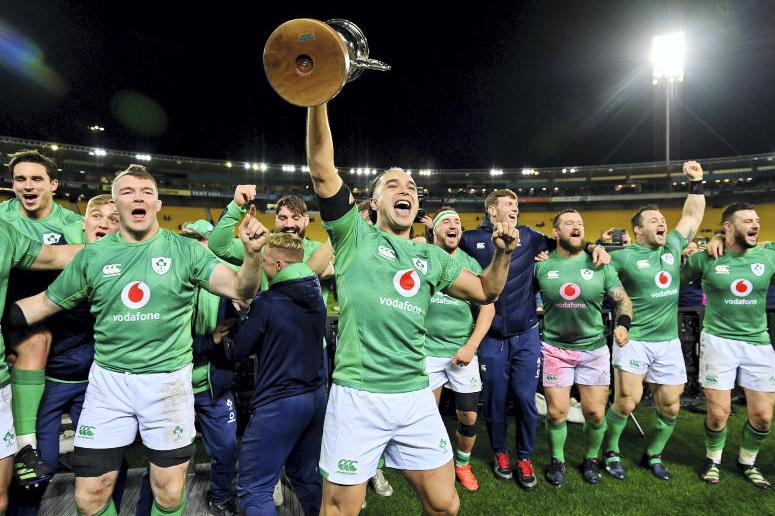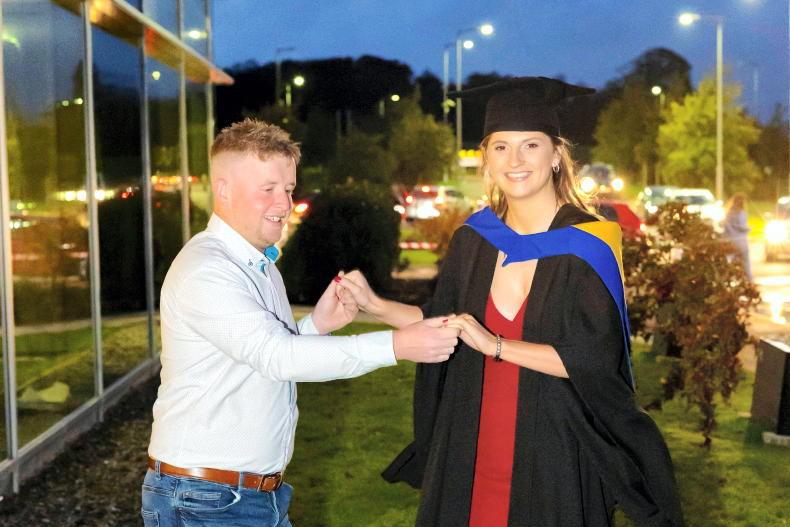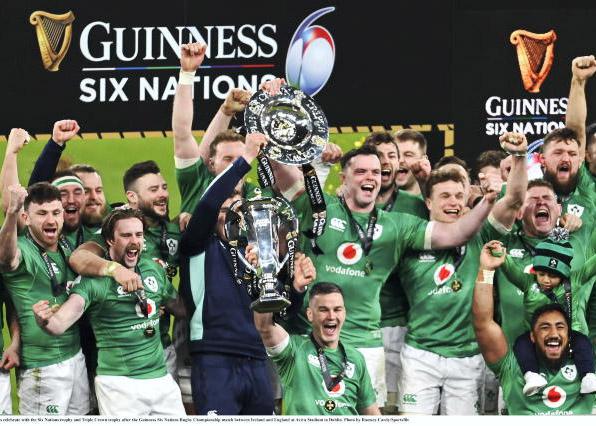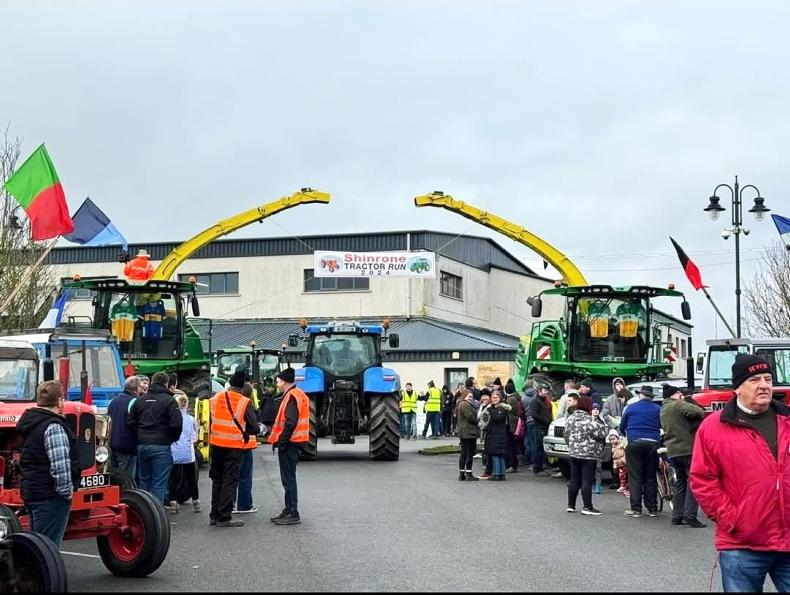History tends to repeat itself far more often that we actually notice.
For instance, when penning a review of what we have seen over the past 12 months, it’s often worthwhile to look back at what we wrote a year ago, such as: “A couple of defeats for the Shannonsiders in the Allianz Hurling League might have given the impression that they were not the same force.”
That was 2021, which ended with Limerick retaining the All-Ireland SHC and yet, as John Kiely’s side racked up the losses in the league this year, there were murmurings that perhaps the crown was beginning to slip.
Of course, the compacted schedule, where the league flowed into the championship, meant that teams had to tailor their preparations and, come the start of the ‘real’ stuff, the Treatymen were still the team to beat – or not beat, as it turned out.
And yet, the chasing pack did have some glimmer of hope. In 2021, Limerick won the Munster final, All-Ireland semi-final and All-Ireland final by five, 11 and 16 points respectively; in 2022, those games were won by three, three and two points respectively for an aggregate of eight points. Their representation on the All-Star team also dropped, from 12 places to seven.
And yet, even while they might not have been as imperious as the previous year and opponents were able to get close, Limerick kept coming out on the right side of those encounters. That’s a side-effect of the experience that comes with winning games – essentially, the more you win, the more you can win.
Rise of the Kingdom
That’s a prospect that the rest of the country will be fearing in terms of the All-Ireland football championship after Kerry ended their eight-year ‘drought’. A youngish side, built on unprecedented success at minor level and buttressed with some older hands, had been the coming team for a few years only to suffer disappointing defeats to Cork and Tyrone in the ‘old style’ straight-knockout championships of 2020 and 2021 respectively.
All-Irelands are hard to win – as the reigning champions Tyrone found, exiting the Ulster and All-Ireland championships in quick succession – but Kerry’s belief didn’t waver, especially with Jack O’Connor back in the hot seat as manager.
After the usual romp through Munster, they had a business-like win over Mayo before edging past Dublin in an epic where Seán O’Shea’s monstrous free got them over the line. Then, the final developed into a shootout between David Clifford and Galway’s Shane Walsh, with Kerry having the stronger finish to bring Sam Maguire back to the Kingdom.
Having finally broken through the glass ceiling like Limerick did in 2018, it wouldn’t surprise if Kerry were to add more titles in quick succession but that is something that we will look at in next week’s preview of 2023.

David Clifford of Kerry catches ahead of John Daly of Galway during the GAA Football All-Ireland Senior Championship Final. \ David Fitzgerald/Sportsfile
Obviously, if O’Shea hadn’t gotten the late winner against Dublin, there’s every chance that Dessie Farrell’s team might have won the game in extra time, leaving them to face Galway in the decider and extending Kerry’s wait to nine years while postponing talks of a dynasty.
Royal rulers
Similarly, if Meath had not wiped out a seven-point deficit in the closing stages of their 2021 All-Ireland ladies’ semi-final against Cork, they may well have lacked the extra confidence and savoir-faire to claim the 2022 title.
Such are the sliding-doors moments – the Royal women built on their breakthrough success to make it back-to-back victories. They are the new queenpins but there may well be a new raft of challengers as this year was the first since 2002 where neither Cork nor Dublin made the final, with the ‘old firm’ not even reaching the semis.
Camogie triumvirate
Camogie remains the preserve of the big three of Cork, Galway and Kilkenny, who hold a triopoly on final appearances since 2012. This year, it was the Cats who squeezed past the Rebels, a year after the Tribeswomen had done so. The margins are certainly fine between the three teams.
However, as the quality and the profile of camogie and ladies’ football continue to improve, we are still left with issues where dual players are faced with fixture clashes. While the move towards a single association covering all of the Gaelic sports may solve this, progress remains glacially slow.
Ireland on top of the world
Ireland finished second in the Guinness Six Nations Championship, losing only to grand-slam winners France – not bad by any means but leaving us unsure how much room for improvement there was.

rish players celebrate their series win against New Zealand in Wellington. \Brendan Moran/Sportsfile
Thankfully, the rest of the year saw more and more progress, with a series win in New Zealand and a clean sweep in the Autumn Series. It leaves Andy Farrell’s men top of the world rankings and in good shape ahead of 2023. What was most pleasing was the way that the team - that was expected to beat South Africa and Australia in November - actually did so, whereas in the past such games would be fueled by hope.
A fourth-placed finish for the women’s rugby team in the Six Nations was disappointing but the latter part of the year brought some optimism as the first steps towards professionalism were taken. Instant results may not materialise but the key thing is that there is sustainability.
One night in Hampden
For proof of how gradual progress can result in major success, one only has to look at the Republic of Ireland women’s soccer team. That night in Hampden Park in October, when Amber Barrett scored the goal to send Vera Pauw’s team to the World Cup, will live long in the memory and we can only hope that there are similar experiences in store next year.

Megan Campbell and Diane Caldwell, right, of Ireland celebrate after the World Cup play-off against Scotland at Hampden Park. \ Stephen McCarthy/Sportsfile
Unfortunately, the men’s team continue to effectively run on the spot as encouraging results are followed by setbacks, a seemingly endless cycle. Relegation was at least avoided in the Uefa Nations League but Ireland were out of the running for World Cup qualification at an early stage.
With a tough Euro 2024 qualifying group in store, it’s not easy to foresee an uptick in fortunes, but then Christmas is the season of perpetual hope. It’s what keeps us all coming back.
History tends to repeat itself far more often that we actually notice.
For instance, when penning a review of what we have seen over the past 12 months, it’s often worthwhile to look back at what we wrote a year ago, such as: “A couple of defeats for the Shannonsiders in the Allianz Hurling League might have given the impression that they were not the same force.”
That was 2021, which ended with Limerick retaining the All-Ireland SHC and yet, as John Kiely’s side racked up the losses in the league this year, there were murmurings that perhaps the crown was beginning to slip.
Of course, the compacted schedule, where the league flowed into the championship, meant that teams had to tailor their preparations and, come the start of the ‘real’ stuff, the Treatymen were still the team to beat – or not beat, as it turned out.
And yet, the chasing pack did have some glimmer of hope. In 2021, Limerick won the Munster final, All-Ireland semi-final and All-Ireland final by five, 11 and 16 points respectively; in 2022, those games were won by three, three and two points respectively for an aggregate of eight points. Their representation on the All-Star team also dropped, from 12 places to seven.
And yet, even while they might not have been as imperious as the previous year and opponents were able to get close, Limerick kept coming out on the right side of those encounters. That’s a side-effect of the experience that comes with winning games – essentially, the more you win, the more you can win.
Rise of the Kingdom
That’s a prospect that the rest of the country will be fearing in terms of the All-Ireland football championship after Kerry ended their eight-year ‘drought’. A youngish side, built on unprecedented success at minor level and buttressed with some older hands, had been the coming team for a few years only to suffer disappointing defeats to Cork and Tyrone in the ‘old style’ straight-knockout championships of 2020 and 2021 respectively.
All-Irelands are hard to win – as the reigning champions Tyrone found, exiting the Ulster and All-Ireland championships in quick succession – but Kerry’s belief didn’t waver, especially with Jack O’Connor back in the hot seat as manager.
After the usual romp through Munster, they had a business-like win over Mayo before edging past Dublin in an epic where Seán O’Shea’s monstrous free got them over the line. Then, the final developed into a shootout between David Clifford and Galway’s Shane Walsh, with Kerry having the stronger finish to bring Sam Maguire back to the Kingdom.
Having finally broken through the glass ceiling like Limerick did in 2018, it wouldn’t surprise if Kerry were to add more titles in quick succession but that is something that we will look at in next week’s preview of 2023.

David Clifford of Kerry catches ahead of John Daly of Galway during the GAA Football All-Ireland Senior Championship Final. \ David Fitzgerald/Sportsfile
Obviously, if O’Shea hadn’t gotten the late winner against Dublin, there’s every chance that Dessie Farrell’s team might have won the game in extra time, leaving them to face Galway in the decider and extending Kerry’s wait to nine years while postponing talks of a dynasty.
Royal rulers
Similarly, if Meath had not wiped out a seven-point deficit in the closing stages of their 2021 All-Ireland ladies’ semi-final against Cork, they may well have lacked the extra confidence and savoir-faire to claim the 2022 title.
Such are the sliding-doors moments – the Royal women built on their breakthrough success to make it back-to-back victories. They are the new queenpins but there may well be a new raft of challengers as this year was the first since 2002 where neither Cork nor Dublin made the final, with the ‘old firm’ not even reaching the semis.
Camogie triumvirate
Camogie remains the preserve of the big three of Cork, Galway and Kilkenny, who hold a triopoly on final appearances since 2012. This year, it was the Cats who squeezed past the Rebels, a year after the Tribeswomen had done so. The margins are certainly fine between the three teams.
However, as the quality and the profile of camogie and ladies’ football continue to improve, we are still left with issues where dual players are faced with fixture clashes. While the move towards a single association covering all of the Gaelic sports may solve this, progress remains glacially slow.
Ireland on top of the world
Ireland finished second in the Guinness Six Nations Championship, losing only to grand-slam winners France – not bad by any means but leaving us unsure how much room for improvement there was.

rish players celebrate their series win against New Zealand in Wellington. \Brendan Moran/Sportsfile
Thankfully, the rest of the year saw more and more progress, with a series win in New Zealand and a clean sweep in the Autumn Series. It leaves Andy Farrell’s men top of the world rankings and in good shape ahead of 2023. What was most pleasing was the way that the team - that was expected to beat South Africa and Australia in November - actually did so, whereas in the past such games would be fueled by hope.
A fourth-placed finish for the women’s rugby team in the Six Nations was disappointing but the latter part of the year brought some optimism as the first steps towards professionalism were taken. Instant results may not materialise but the key thing is that there is sustainability.
One night in Hampden
For proof of how gradual progress can result in major success, one only has to look at the Republic of Ireland women’s soccer team. That night in Hampden Park in October, when Amber Barrett scored the goal to send Vera Pauw’s team to the World Cup, will live long in the memory and we can only hope that there are similar experiences in store next year.

Megan Campbell and Diane Caldwell, right, of Ireland celebrate after the World Cup play-off against Scotland at Hampden Park. \ Stephen McCarthy/Sportsfile
Unfortunately, the men’s team continue to effectively run on the spot as encouraging results are followed by setbacks, a seemingly endless cycle. Relegation was at least avoided in the Uefa Nations League but Ireland were out of the running for World Cup qualification at an early stage.
With a tough Euro 2024 qualifying group in store, it’s not easy to foresee an uptick in fortunes, but then Christmas is the season of perpetual hope. It’s what keeps us all coming back.











SHARING OPTIONS